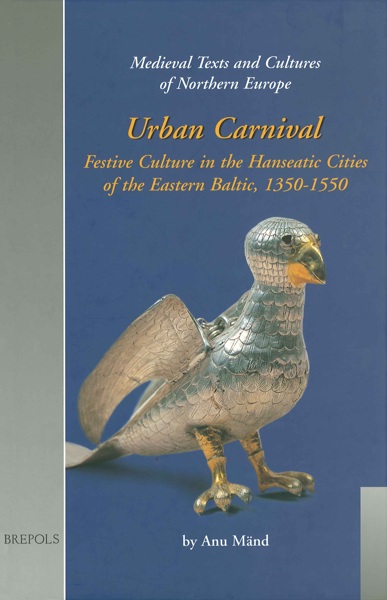
Urban Carnival
View publication
“Overall, the research presented in Parisian Confraternity Drama of the Fourteenth Century hews to a high standard and offers a first-rate model for the study of late medieval drama.” (Susannah Crowder, in: The Medieval Review, 10.01.07)
"Anyone with an interest in medieval theatre, or in the late medieval reception of twelfth- and thirteenth-century hagiography, epic, and romance, will find much useful and stimulating material here." (in: Medium Aevum, LXXIX (2010), p. 180-181)